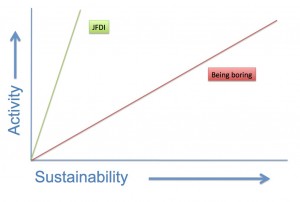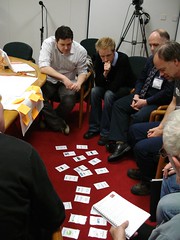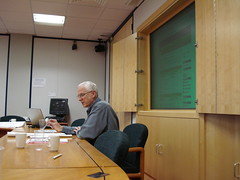I find this stuff so that you don’t have to.
- Social Media Security – "We have found a huge lack of accurate information around security issues and awareness of social media. This website aims to help educate users of social media of the threats, risks and privacy concerns that go with using them."
- E-government is not a financial cure-all – "Whoever is in charge after 6 May, I expect the drive towards "smarter government" (or whatever catch phrase replaces it) to continue. There are simply no other tools in the box. But whoever is in charge will avidly wish someone had made a bolder start while the going was good."
- bantApp.com: Bant Diabetes Monitoring App for the iPhone and iPod Touch – Interesting iphone app for diabetes management, via @robertbrook
- Two models of open innovation – "Based on our recent experience of working on open innovation projects, and also building upon a great paper by Kevin Boudreau and Karim Lakhani, we have concluded that there are two distinct ways of doing open innovation – creating competitive markets or collaborative communities"
- Let government screw up – "I have the opportunity to speak to groups across government about the benefits, challenges and potential costs of social media. In the face of institutional anxiety, I’ve argued that social media is a positive environment that encourages experimentation. In fact, online users are willing to accept mis-steps and stumbles from government organizati0ns simply because it demonstrates initiative and ambition, if not expertise."
- Project Spaces: A Format for Surfacing New Projects – home – "The event format I'm calling Project Spaces has emerged from working with various collaborators to facilitate events for communities actively engaged and committed to finding better ways to do things."
- Can Open Office Escape From Under A Cloud? – "I do see a future for Open Office in the enterprise — one that’s closely tied to integration with collaboration, content management, and business processes and facilitated by the likes of Oracle and IBM."
- A democratic view of social media behaviours – Interesting action research post from Catherine – plenty to chew on here.
- Digital exclusion, porn and games – "I wonder if – as with mobile phones – there’s a certain, influential generation that see the technology as being more than just a technology. And instead, a marker for a whole way of life they just haven’t accepted yet."
- Social media measurement – Great stuff from Stuart Bruce – debunking a few myths and some marketing BS.
You can find all my bookmarks on Delicious. There is also even more stuff on my shared Google Reader page.
You can also see all the videos I think are worth watching at my video scrapbook.




